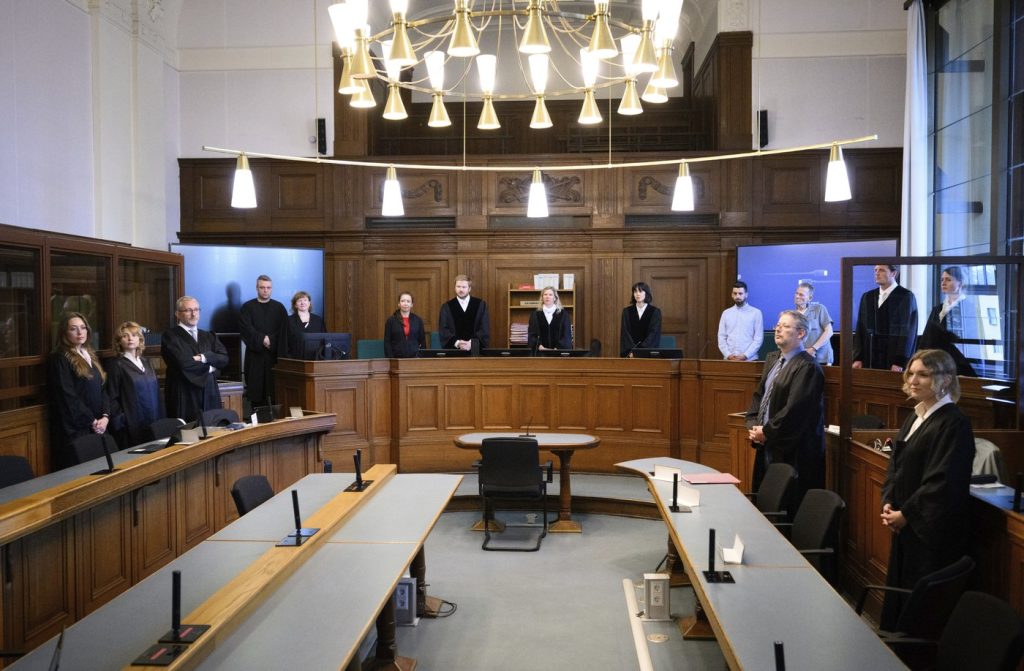BERLIN (AP) – A significant trial commenced in Berlin on Monday involving a German doctor accused of murdering 15 of his patients while they were receiving palliative care. The 40-year-old physician, identified only as Johannes M. due to German privacy regulations, faces serious allegations that include 15 counts of murder with malice aforethought.
The prosecutor’s office has not only brought murder charges but is also seeking a conviction that acknowledges particularly serious guilt, which could result in a lifetime ban on practicing medicine and preventive detention for the defendant. In Germany, murder charges can lead to a maximum sentence of life imprisonment, and if particularly severe guilt is found, the individual is not eligible for release after the standard 15 years.
Since being taken into custody on August 6, Johannes M. has been linked to the deaths of patients aged 25 to 94, all of whom died in their own homes. Initially suspected in just four patient deaths, prosecutors have expanded the investigation to include a total of 15 occurrences between September 22, 2021, and July 24, 2022. The doctor is accused of administering an anesthetic and a muscle relaxant without the patients’ knowledge or consent, leading to respiratory arrest and death within minutes.
To complicate the case further, Johannes M. is alleged to have attempted to destroy evidence by starting fires in the homes of the deceased patients. The investigation into these suspicious deaths led to a specially established team within the homicide department of the Berlin State Criminal Police, scrutinizing a total of 395 cases. Out of these, initial suspicions were confirmed in 95 cases, leading to ongoing investigations and preliminary proceedings.
The accused has not cooperated with psychiatric evaluations prior to the trial, causing legal experts to observe his behavior during the court proceedings and assess his personality and culpability based on testimony from witnesses. The motives behind the murders remain unclear, with the only information available indicating that the victims were seriously ill at the time of their deaths, though their conditions were not deemed immediately life-threatening.
As the trial unfolds, the Berlin state court has scheduled an extensive series of 35 trial dates, anticipated to run until January 28, 2026. Thirteen relatives of the deceased patients are recognized as co-plaintiffs, and a total of around 150 potential witnesses are slated to provide testimony in court.
Simultaneously, investigations into other suspected deaths related to the defendant continue, with five exhumations planned as part of the broader inquiry. The recent case draws parallels to prior incidents in Germany, such as the case of a nurse convicted in 2019 for murdering 87 patients by deliberately inducing cardiac arrests.
Earlier this month, additional allegations surfaced regarding another doctor in Itzehoe suspected of killing several patients, marking a concerning trend in medical malpractice cases within the country.
The trial of Johannes M. represents a critical moment in the ongoing scrutiny of ethical practices in palliative care, captivating public attention as the judicial proceedings reveal unsettling details surrounding the controversial actions of a medical professional sworn to provide care and comfort at the end of life.










